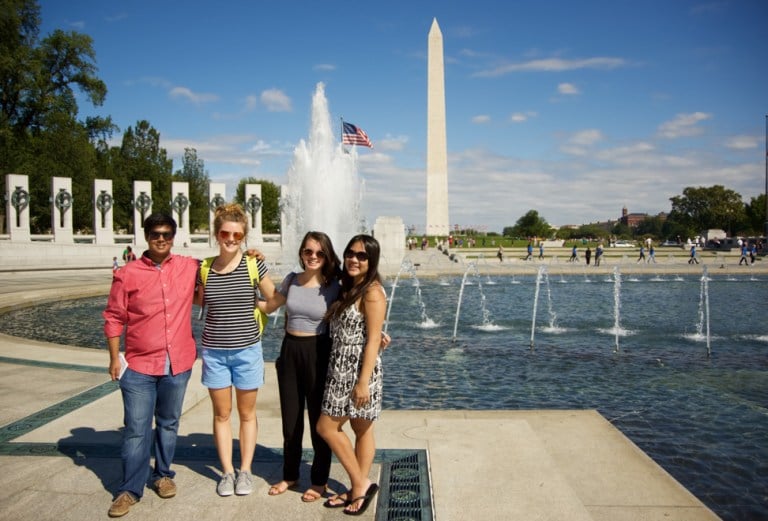The upcoming winter quarter of Stanford in Washington (SIW) faces two obstacles: Potentially lower attendance rates compared to years past and changes in student interest due to political changes in Washington, D.C., following the recent election. Nevertheless, students and program administrators are hopeful about the future of SIW, believing the current political climate will spur more students to positive action and activism.
According to Jill Vizas, the on-campus program manager, SIW generally has an attendance rate of 12 to 15 students each winter quarter. Next quarter, however, it will have only eight.
“I don’t know if it’s because more people are opting for actual abroad programs or less people are going off campus in general, but it was surprising to me and other people I talked to,” said Amy Tan ’18, who will be attending SIW this winter.
However, the reason for these lower numbers is likely unrelated to election results, since the deadline for winter quarter applications occurred long before Election Day. Winter SIW is geared towards health policy, environmental policy, science, technology and the arts, and students who apply must show a “demonstrated interest” in one of these fields in order to attend.
Vizas said that attendance is usually lower in the winter due to the specialized nature of the program.
The larger issue may lie in the future of the program. President-elect Donald Trump has promised to make sweeping changes in health and environmental policy, which could directly affect the organizations where winter SIW students intern.
“I get the sense that many of the agencies I’m interested in — Department of the Interior, Department of Energy, EPA, etc. — are probably going to undergo leadership changes that will undermine much of what they’ve fought for in the preceding years, not to mention cuts in their funding,” said Michael Burnett ’18, who will also be attending this winter.
Such policy changes and the shifting political climate in Washington could also deter students from applying to future quarters of SIW.
“I originally came into Stanford wanting to do a White House internship… and now I’ve really had to rethink that,” said Valerie Rincon ’20.
“I can see the possibility of [the election] affecting the program,” Tan agreed. “The individual that [Trump] selected for the transition period is a climate change denier and I think that might turn people off.”
It seems that most students, though, whether they are already committed to attend or considering SIW for the future, have not changed their opinions on going to Washington. For example, Tan mentioned that a friend of hers currently applying for spring quarter had decided to change his internship choice as a result of the election, but was still committed to the program.
“We haven’t had anybody quit. Everyone is still committed to going to Washington,” Vizas said.
“I no longer really have an interest in doing a White House internship, [but] I’m probably going to try and do a think tank or work with an organization that focuses on the issues that I’m interested in,” Rincon added.
In fact, both students and administrators are optimistic that the election will prompt students to action and bolster enrollment in SIW. Tan and Vizas believe that SIW will remain a valuable experience for students with, in Tan’s words, “opportunities for everyone.”
“We’re definitely positive out here,” added Asha Brundage-Moore ’15, the program coordinator. “Everyone is really committed to continue fighting for the policy areas that they’re interested in, and we hope to see that for the rest of the year and the next four years.”
At any rate, the election seems to have sparked true commitment in many students who were previously unsure about pursuing a career in politics or legislation.
“I grew up caring deeply about the environment and intend to live my whole life studying and supporting it,” Burnett said. “Trump’s election has truly reaffirmed my belief that studying environmental science and policy is invaluable for the future of the world.”
“If you have interests that need representation and no one else is representing them for you, then you need to go do that yourself,” Rincon added. “I can’t afford to stand on the sidelines anymore.”
Contact Veronica Kim at vkim70 ‘at’ stanford.edu
